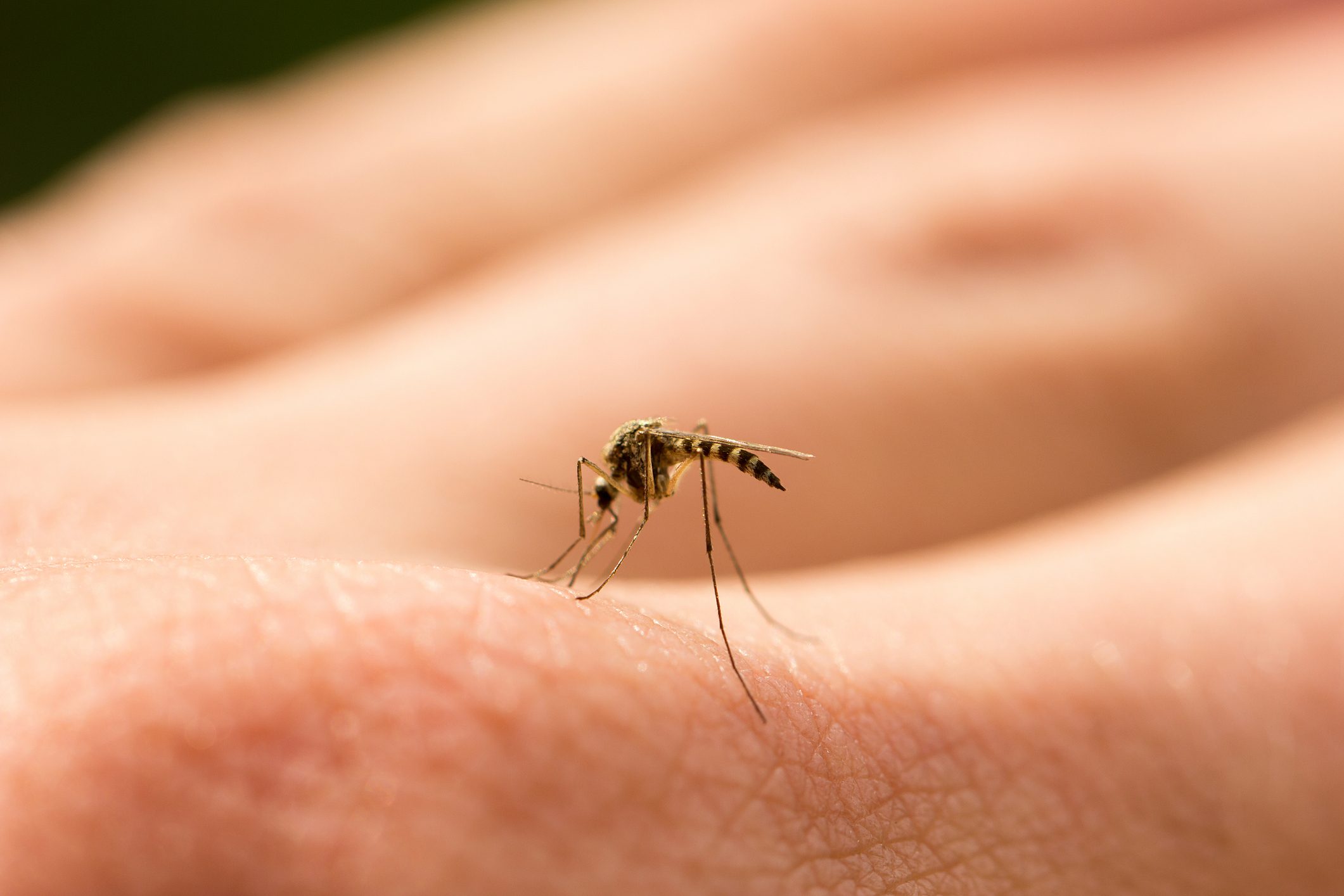It's carrying a disease that's been found in 46 U.S. states. Here's what a nationally renowned immunology doctor insists Americans should know—now.

After a Mystery Illness, an Expert Doctor Calls This Tiny Creature “the Deadliest Animal on the Planet”

When you think of the world’s deadliest animals, you might envision the most aggressive predators: Steel-jawed sharks ruthlessly targeting surfers, or lions in the Serengeti hunting their kill. Yet according to the World Health Organization (WHO), mosquito-borne illnesses claim the lives of more than 700,000 people annually, making these tiny creatures the single deadliest animal on the planet in the eyes of many medical researchers.
Dr. Anthony Fauci, MD, a leading immunologist who served as the director of the National Institute of Allergy and Infectious Diseases from 1984 to 2022 (notably during the Covid pandemic), emphasized this point when he recently shared his own “harrowing” experience of contracting a mystery virus in his own backyard in Washington, DC over the summer.
In a guest essay published on October 7 in The New York Times, Dr. Fauci recounted a period of life-threatening illness in which he experienced “unexplained severe fatigue and exhaustion, culminating in my admission to a hospital on Aug. 16, delirious and incoherent, with a temperature of 103 degrees.”
Dr. Fauci says he remembers “little of the five and a half days” he spent hospitalized, but notes that he had “never felt so ill” in his life. Believing he might have sepsis, his doctors treated him with antibiotics and discharged him without a clear diagnosis, while waiting on the results of various blood tests.
Those blood tests ultimately revealed that Dr. Fauci had West Nile Virus, a single-stranded RNA virus that commonly causes headaches, body aches, joint pain, skin rash, diarrhea and vomiting. Some patients also experience neurological symptoms, including cognitive impairment, encephalitis, meningitis, and more.
“There is no treatment for West Nile virus disease, and I was left to deal with its toll on my body. It was terrifying,” Dr. Fauci wrote in his op-ed. “I could not swing my legs over the side of the bed to sit up without help from my wife and three daughters. I could not stand up without assistance and certainly could not walk. A very scary part of the ordeal was the effect on my cognition. I was disoriented, unable to remember certain words, asking questions of my family that I should have known the answers to. I was afraid that I would never recover and return to normal.”
Often contracted after international travel, West Nile Virus is a growing public health threat that has now been detected domestically in 46 U.S. states. (A national map updated on October 1, 2024, suggests Washington state, Oregon, Kentucky, Alaska and Hawaii have not reported cases.) Dr. Fauci said in an October 7 interview on MSNBC that he’d stepped out to his yard for a media photo shoot and had to stand still rather than swat the bugs away. The public, he says, is largely unaware of the danger of West Nile and other mosquito-borne illnesses. He’s now calling on public health officials and researchers to develop vaccines and antiviral drugs to prevent severe illness and death in those who become infected.
Since 1999, more than 60,000 West Nile cases have been reported in the U.S., though Dr. Fauci estimates that the true number of infections is likely much higher—“no doubt in the millions, since many cases are not reported because infections are often asymptomatic or are confused with other common maladies such as flu.” The government cites 808 reported U.S. cases in 2024, with greater than 75% of those being “neuroinvasive.”
On Monday, Dr. Fauci said he felt “extraordinarily lucky” that he was able to regain all of his physical and cognitive functions. “Very often, people can either die or have permanent impairment, neurologically,” he said.
However, he also stresses that leaving our nation’s approach up to “luck” would be a grave mistake. “Considerably more resources must be put into addressing this threat now, not when the threat becomes an even greater crisis,” he wrote, noting that global warming will worsen the growing problem. “As a society, we cannot accept this as the status quo.”
For daily wellness updates, subscribe to The Healthy by Reader’s Digest newsletter and follow The Healthy on Facebook and Instagram. Keep reading:




















